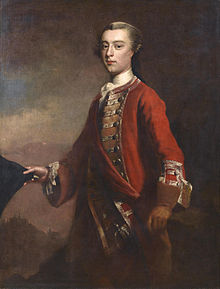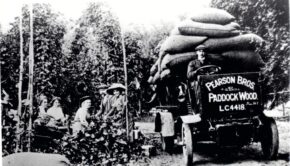Westerham: Birthplace to General James Wolfe
One of the most successful military leaders in British history
Winston Churchill’s fame often obscures the fact that Westerham has many other famous past residents. The priest, martyr and writer John Fryth was born in the village and the 18th century Prime Minister William Pitt the Younger owned a house there.
A particularly interesting story though belongs to James Wolfe, who was born in what is now Quebec House, Westerham, in 1727. His father was Lieutenant General Edward Wolfe and James naturally followed in his father’s footsteps into the military. He officially joined the army at the age of 14 and two years later impressed the Duke of Cumberland while on service in Germany during the War of the Austrian Succession. The Duke became a form of mentor to James and helped him rise through the ranks in a career that would culminate in him being appointed a Major General.
In 1757 Wolfe was asked to be second in command under Major General Jeffrey Amherst in North America during the Seven Years War. Wolfe directed the attack and capture of the French fortress at Louisbourg with speed and competence. This in turn led directly to him being promoted to Major General for the campaign that would make him famous across Britain.
For the duration of the war, the French army had been dug in at Quebec and Wolfe was tasked with devising a plan of attack. He thought of a risky plan and implemented it with his usual trademarks: proficiency and a loyal army under him. Five thousand of his men sailed down the Saint Lawrence River to a point at the base of the cliffs of the Plains of Abraham. The French army, under the command of the Marquis de Montcalm, believed these cliffs to be an insurmountable obstacle to any enemy action but Wolfe and his men scaled them easily, bringing with them at least two cannons.
The advantageous start to the battle, with its inherent element of surprise, gave Wolfe all he needed and the French were quickly sent into disarray. After 15 minutes the enemy began to retreat: Quebec had finally fallen to the British. The victory effectively sealed the unification of Canada and all the American colonies under the rule of the British Empire and would make Wolfe one of the most successful military leaders in British history.
However, his finest hour was also to be his last. As he led the charge against the retreating French, Wolfe was fatally shot twice in the chest. He was 32 years old.
His body was returned to Britain and buried at the church of Saint Alfege in Greenwich, the same place that Wolfe had joined the army as a boy. At the time, the country’s response to his victory and demise were similar to that of Admiral Nelson’s in 1805.
Fittingly, a number of streets in Westerham are named after Wolfe, and Saint Mary’s church still has the font from which he was baptised. This, alongside Quebec House and the other famous residents, make Westerham a significant village in British history.
By Michael Taylor- Crowborough






Comments